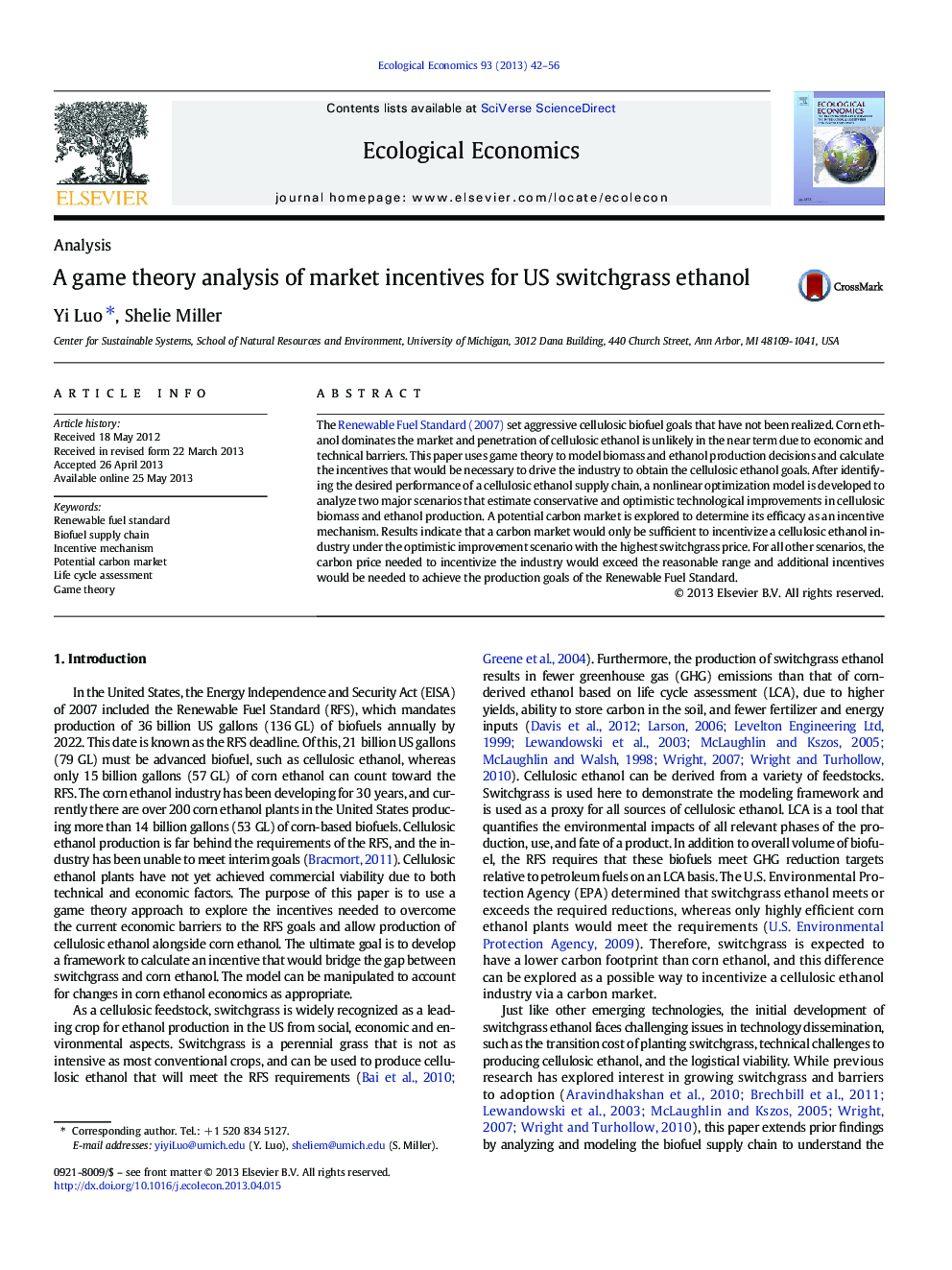| Article ID | Journal | Published Year | Pages | File Type |
|---|---|---|---|---|
| 5049941 | Ecological Economics | 2013 | 15 Pages |
â¢We explored an efficient incentive mechanism to reach the RFS goals in USA.â¢We employed game theoretic models to predict the biomass and ethanol production.â¢We developed a non-linear optimization model to find appropriate monetary incentives.â¢We explored a carbon market as a potential manifestation of the incentive mechanism.â¢A potential carbon market may incentivize a cellulosic ethanol market.
The Renewable Fuel Standard (2007) set aggressive cellulosic biofuel goals that have not been realized. Corn ethanol dominates the market and penetration of cellulosic ethanol is unlikely in the near term due to economic and technical barriers. This paper uses game theory to model biomass and ethanol production decisions and calculate the incentives that would be necessary to drive the industry to obtain the cellulosic ethanol goals. After identifying the desired performance of a cellulosic ethanol supply chain, a nonlinear optimization model is developed to analyze two major scenarios that estimate conservative and optimistic technological improvements in cellulosic biomass and ethanol production. A potential carbon market is explored to determine its efficacy as an incentive mechanism. Results indicate that a carbon market would only be sufficient to incentivize a cellulosic ethanol industry under the optimistic improvement scenario with the highest switchgrass price. For all other scenarios, the carbon price needed to incentivize the industry would exceed the reasonable range and additional incentives would be needed to achieve the production goals of the Renewable Fuel Standard.
